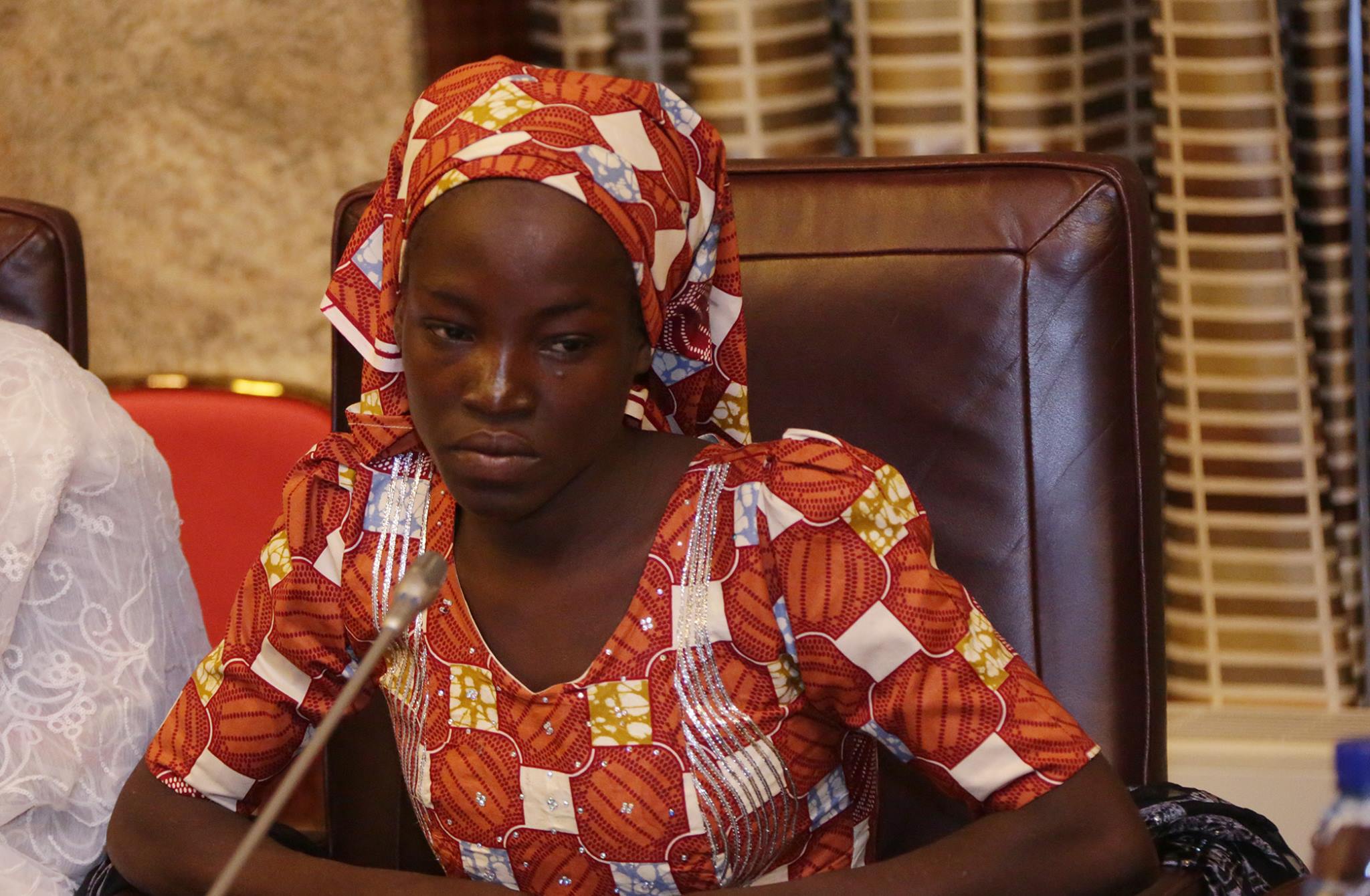Veteran musician and broadcaster, Onyeka Onwenu writes about the Chibok girls abducted from their school by the Islamist terrorist group, Boko Haram.
[dropcap]M[/dropcap]y body reacts in a peculiar way when I have something heavy on my mind. I am unable to sleep and will have no peace until I offload. That is why I am writing this at 2 am on Friday morning, April 15 2016, while monitoring the Democratic Party Presidential Debate in New York, on CNN.
I have the plight of Chibok girls on my mind. For two years now, Nigeria has been tagged with the horrendous event of the kidnapping of nearly 300 secondary school girls from Chibok, Borno State, in Nigeria’s beleaguered North East, by the terrorist group Boko Haram.
Many had given up on the Chibok girls, believing that after two years, they must have been sold off, forcibly married, raped, impregnated, used as human shield and deployed as suicide bombers, as their abductors had threatened.
However, the appearance of a video clip, showing fifteen of the girls, released by a Boko Haram chief negotiator and identified by some of their parents, has raised some hope around the world that at least some of the girls are still alive. This is a welcome development.
The girls were looking surprisingly robust. They were well covered in their hijab, so one could not tell whether they were pregnant or not. The girls all kept their gaze down, non looked up, even when speaking, an indication to me that grave psychological damage may have been done to them.
The blame game that surrounded the Chibok abduction, the debate about its veracity and its politicization, did not bring out the best in us as a nation. There were mistakes on all sides.
Perhaps, if there had been better communication between the local, state, and federal governments. The reaction time to the event would have been shortened and who knows, the girls could have been rescued. The story was that their vehicle even broke down and they waited for hours before it could be repaired. But then why was it that in a facility that was used by both male and female students for their preparation for WAEC Exams, only female students were boarders, in an area acknowledged to be vulnerable to attack and even after the Ministry for Education had advised against such an arrangements, outside the state capital, Maiduguri.
Some questions begged for answers but none were provided. The principal, teachers and housemistress were all absent. The girls were left to their own devices, with no security personnel and no light. Boko Haram had a field day.
The abduction of the Chibok girls has become a defining international campaign, thanks to social media and the persistence of the #BringBackOurGirls Group. God bless them, even though some did suspect their motives and methods, initially. It has also become a symbol of Nigeria’s “ineptitude” in dealing with a topical issue, the protection and education of the girl child.
Admittedly, it would be a most difficult task, to rescue the girls safely, even with more sophisticated help from countries like the UK and US. That fact, however, has not stopped Nigeria’s image from taking a bashing and deservedly so. Our record on the promotion of the wellbeing of women and girls is dismal. Consider these statistics:
Nigeria ranks 125th out of 145 countries for poor treatment of women, generally. Rwanda, a much smaller country in more ways than 1, ranks 6th in the world and 2nd in terms of women’s representation in political office.
The recent rejection of the Women’s Equality Bill, in the Senate and the sexist, condescending and downright insulting comments on the need for Nigerian men to marry their mistresses and such inanities further exposed Nigeria’s backwardness on issues concerning the welfare and well being of women.
More than the nearly 300 Chibok girls, thousands of our women and girls have been killed, maimed, physically and mentally tortured, raped, and abused by Boko Haram and other groups. We use the Chibok girls as handle, a reference point for them. Our inability to protect some of the most vulnerable groups in our society, let alone educate them, is tantamount to writing off our future.
Now that there is a glimmer of hope on the horizon, we must never again get into the blame game. Rather we should encourage and pray for our Government, for the safe return of our girls and for the stoppage of this and every other mindless and destructive armed campaign against the citizens of our country.
Nigeria must not just bring back our girls, but must also respect their right to education, good health, employment and protection from physical and emotional abuse, rape and killings. Herein lies the future of our country, it’s very survival, if you will.
Thank you and God bless.
Onyeka Onwenu is an iconic Nigerian musician and member of the Order of the Federal Republic (MFR). She is also a veteran journalist and broadcaster. She is also a politician.
The opinions expressed in this article are solely those of the author.







